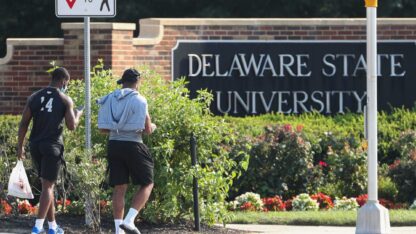Students at some Historically Black Colleges and Universities and Minority-Serving Institutions may soon have an easier path to graduation thanks to a new course-sharing program from the Southern Regional Education Board. The initial consortium of schools includes three from Georgia: Morehouse College, Fort Valley State University and Albany State University. The plan will let them share online courses with schools in states like South Carolina, Texas, Oklahoma and Arkansas.
“Colleges and universities that have signed on as a part of this consortium have the opportunity to share their entire online undergraduate catalog … or they can choose to share individual courses,” says Stevie Lawrence, vice president for postsecondary education at SREB.
The SREB hopes expanding course options will help more students graduate on time, Lawrence says. For example, students can take more courses through “mini-mesters,” which are about half as long as a regular semester.
“So, students can take more courses in a semester than they normally could or would through this type of opportunity, especially if colleges and universities get really creative and work with each other to exchange courses,” he says.
Lawrence says the program grew out of a course-sharing plan between two HBCUs that are now part of the consortium.









